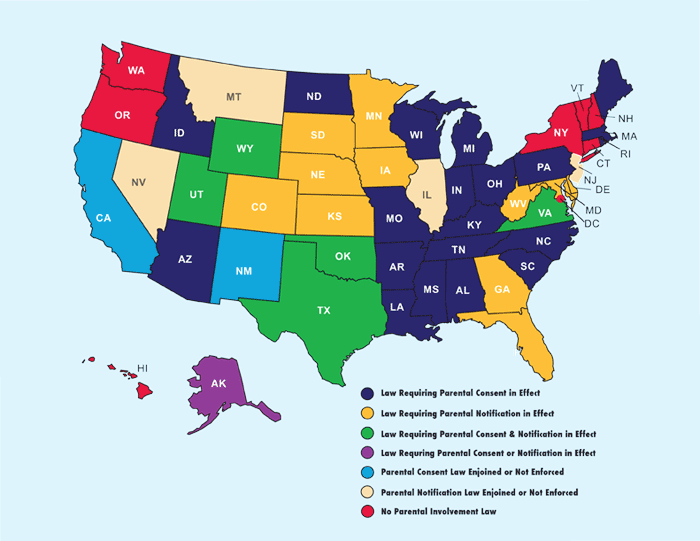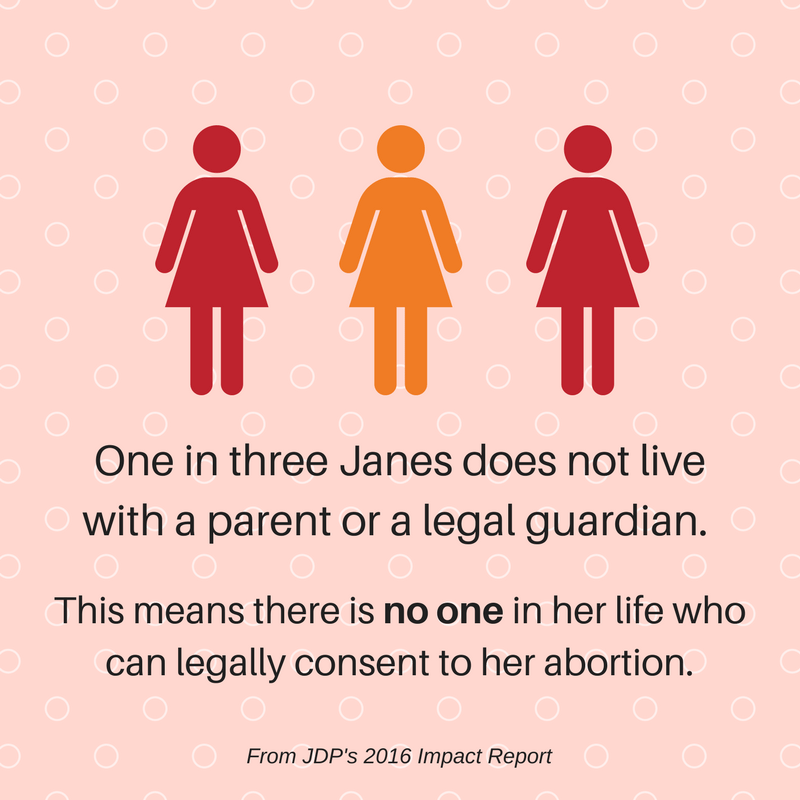

It is neither appropriate nor practicable for the government to attempt to legislate family communication in the difficult circumstances of a minor’s pregnancy. Each year the legislature has rightly declined to enact them. Despite this longstanding and effective public health policy, parental involvement bills requiring either notification of or consent from a parent before a minor may obtain an abortion have been repeatedly introduced in the New York State legislature. These policies recognize the importance, from a public health perspective, of providing teens with unimpeded access to these critical services. Currently, minor adolescents may receive confidential prenatal care, testing, and treatment for sexually transmitted infections and abortion. New York State has long been a leader in promoting reproductive health services for minors, and this important public health policy is facilitated by ensuring that minors can receive services without involving a parent and that these services will remain confidential. But while parental involvement should be encouraged, it is most important that young people have access to the services they need to remain safe and healthy. It is almost always best for parents to be involved in a young person’s decisions about reproductive health care. It is well documented in public health studies and in court rulings that parental involvement laws are bad public health policy because they increase the risk that minors will suffer harm or abuse, avoid or delay seeking necessary care, and/or seek out more dangerous alternatives in order to avoid involving their parents. While the legislation is intended to protect minors, it would, in fact, be harmful to them. Moreover, attorneys' management of experienced stigma and their violation of norms stigmatizing abortion leads some to reproduce abortion stigma in their interactions with minors.The proposed legislation would create a legal requirement that parents of an unemancipated minor must provide consent or must be informed before the minor can receive an abortion. In order to protect what is at stake for their clients in the context of the highly stigmatized Texas courts, attorneys rationally make trade-offs that protect some stakes while undermining others.

Judicial consent for minors seeking abortion professional#
Although what's most at stake for their clients becomes most at stake for attorneys- helping young people obtain a judicial bypass so they can access abortion and protecting them from humiliation and trauma- they must reconcile their own violation of norms stigmatizing abortion with their consciences' motivation to represent bypass clients and protect their professional identity and career advancement from being “tainted” by taking judicial bypass cases. We find that to protect their interests in “keeping pregnant minors in,” the Texas court system constrains attorneys' ability to represent minors through politicization and stigmatization attorneys face logistical and emotional challenges, including navigating hostile or ill-informed courts, witnessing court actors humiliate their clients without means of recourse, and experiencing stigma themselves.

We extend stigma theory to explain how structural abortion restrictions produce stigma at the individual level. We use data from in-depth qualitative interviews with 19 attorneys who participated in a collective 800 judicial bypass cases to explore what's at stake for multiple actors within a shared social space and how interactions between those actors reproduce stigma. There is a lack of empirical data on the process through which abortion laws stigmatize abortion and on the actors involved. Texas requires pregnant young people under 18 (i.e., minors) seeking abortion without parental consent to go to court with an attorney to petition a judge for permission to obtain abortion.


 0 kommentar(er)
0 kommentar(er)
